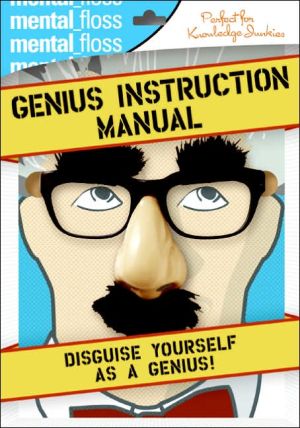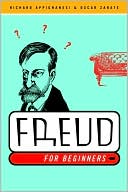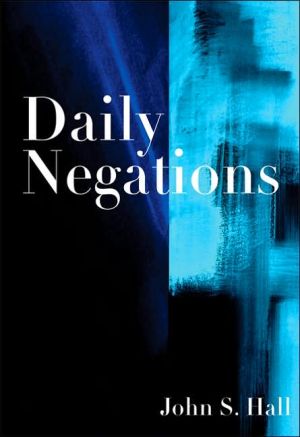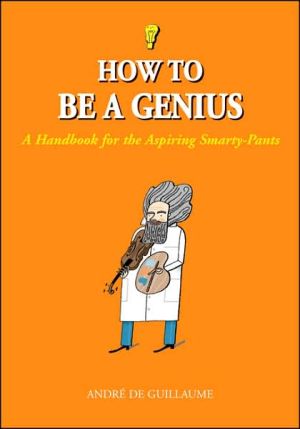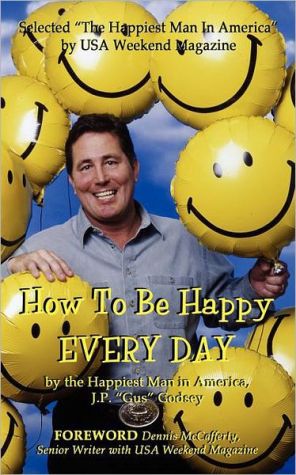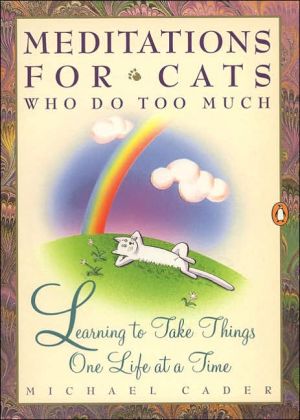Mental Floss: Genius Instruction Manual
Remember that time you bumped into Stephen Hawking at the clambake and his monologue on string theory went completely over your head? Man, was that awkward. Or remember the time you were at a party and someone asked, "Who knows how to perform open-heart surgery?" and you were the only one who didn't raise your hand?\ Well, put all of that embarrassment behind you. Want to dazzle crowds with your wondrous knowledge of Shakespeare and surgeries? Want to learn to woo just like history's greatest...
Search in google:
Remember that time you bumped into Stephen Hawking at the clambake and his monologue on string theory went completely over your head? Man, was that awkward. Or remember the time you were at a party and someone asked, "Who knows how to perform open-heart surgery?" and you were the only one who didn't raise your hand? Well, put all of that embarrassment behind you. Want to dazzle crowds with your wondrous knowledge of Shakespeare and surgeries? Want to learn to woo just like history's greatest minds? Well, start reading already! The Genius Instruction Manual is a foolproof finishing school for polishing your brain. All you've got to do is dive in. Calgary Herald “An ideal reference to settle arguments or jog your memory.”
Mental Floss: Genius Instruction Manual\ \ By Ronin Editors of Mental Floss \ HarperCollins Publishers, Inc.\ Copyright © 2006 Ronin Editors of Mental Floss\ All right reserved.\ ISBN: 0060882530 \ \ \ Chapter One\ Starting off light:\ Hobbies and extra-curricular activities you might want to take up\ (If you're serious about this whole Genius Thing)\ Chess\ Although genius chess players occasionally suffer from some problems (noted chess master Bobby Fischer, for example, had all the silver fillings in his teeth removed so the KGB would stop transmitting radio signals through them), quite a lot of geniuses have enjoyed chess, including:\ Early in his career filmmaker Stanley Kubrick, supplemented his income largely by hustling chess players in New York's Washington Square.\ Ludwig van Beethoven, a chess fanatic who was friends with the man who invented the Turk, the world's first chess automaton. A cupboard-shaped contraption that appeared to be a robot but was actually controlled by a skilled player hiding inside it, the Turk beat many of the greatest luminaries of the 18th century, from Napoleon to . . .\ Benjamin Franklin, who once said, "The game of chess is not merely an idle amusement . . . for life is a kind of chess."\ Play an Instrument\ Not all geniuses go in for music, of course. Samuel Johnson was once told that a particular violin piece was very difficult. "Difficult, do you call it, Sir?" Johnson replied. "I wish it wereimpossible." But the irascible Dr. Johnson aside, a great many geniuses played an instrument in their spare time, including:\ Beginning when he was about 6 and ending when he was 13, Albert Einstein took violin lessons. A lot of us can say that, of course, but Einstein actually stuck with the instrument, and enjoyed playing at parties well into his old age. You've never partied until you've partied with physicists. Their partying force (f) equals the mass (m) of bodies on the dance floor times the acceleration (a) of the DJ's beats, if you know what we're saying. (For the record, we don't really know what we're saying.)\ Benjamin Franklin, who, it is quickly becoming clear, found time to do everything. Franklin played the viola and also invented an instrument he called the glass armonica, which produces music in much the same manner as rubbing a wet finger on a wine glass.\ Before he became chairman of the Federal Reserve and was acclaimed for his brilliant economics mind, Alan Greenspan was a professional jazz musician, playing saxophone and clarinet in jazz clubs in New York's Greenwich Village in the 1950s. In fact, Greenspan attended the world-renowned Julliard School before getting a Bachelor of Science degree from NYU's School of Commerce.\ Drinking\ Now, we're not going to advise that you drink. Drinking can be very bad for geniuses (witness the poet Dylan Thomas, who died at the tender age of 39 soon after noting: "I've had eighteen straight whiskeys; I believe that's the record"). We're just saying that quite a lot of people who enjoy a good drink seem to end up geniuses, including:\ Noted comic genius and part-time philosopher W. C. Fields said, "A man's got to believe in something. I believe I'll have another drink."\ It's probably no coincidence that Tennessee Williams wrote so brilliantly about alcoholics (see, for instance, the character Brick in Cat on a Hot Tin Roof). A lifelong alcoholic who wrote all of his plays while drinking, Williams liked to work early in the morning, and usually had his first martini down by 8 A.M.\ Widely considered the best dancer of her era, Isadora Duncan (1878-1927) was known for her long string of love affairs and for her absolute inability not to spend money the moment it was given her. Being perpetually short of cash and an alcoholic tends to lead to poor decisions: According to her biographer, Duncan sometimes mixed cologne with the last dregs of various wine bottles to cop a buzz. So if anybody ever offers you a cocktail called "The Isadora," you're well advised to pass.\ Hobbies and extra-curricular activities you might want to avoid\ Sports\ Those seeking the bright lights of political genius might be well-advised to play sports (Teddy Roosevelt was a boxer; Gerald Ford an all-American football player; George W. Bush a cheerleader at Andover), but your standard geniuses tend to be miserable at sports. Nuclear physicist Robert Oppenheimer, for instance, was so embarrassed by his lack of physical fitness that not only did he opt out of sports as a child, he also refused to climb stairs at his school. Man, if only Robert Oppenheimer had been in school with us, we might not have been picked last for kickball.\ Opium\ So how come drinking made the list of hobbies to acquire and opium's stuck on habits to avoid? Maybe it's because while drinking kills you and everything, it doesn't nip your genius in the bud quite like opium tends to.\ You might argue that Samuel Taylor Coleridge benefited from opium, since his masterful, but unfinished, "Kubla Khan" was originally conceived during an opium dream. But Coleridge lost decades of potential productivity to the drug. He rarely left his house, was perennially near suicide, and couldn't finish a poem to save his life.\ If you need further proof, just consider that there was only one way to be a Brontë sibling and not succeed: Opium. Branwell Brontë, the ne'er do well brother of Anne, Charlotte, and Emily, was a promising young poet until he became irrevocably addicted to opium. (Fans of the young Branwell's writing included none other than the aforementioned S. T. Coleridge.)\ While there's no record that Sigmund Freud ever smoked or ate opium, it's well established that he used the opiate cocaine on many occasions. Back in the good ole days of psychology, when psychologists intentionally gave their patients malaria to treat syphilis and jammed ice picks into the eye sockets of people suffering hysteria, cocaine was regularly prescribed as "a euphoric." In fact, Freud's "research" into cocaine led him to prescribe the drug to a friend addicted to morphine. It didn't work: The friend merely switched addictions to cocaine, (which eventually proved fatal and he died any way).\ Although she's mostly famous for the children's book Little Women, Louisa May Alcott's novel Work features a female protagonist addicted to opium eating and gambling. Alcott lived by the maxim that you should write what you knowshe herself was addicted to the opiate laudanum.\ \ \ Continues... \ \ \ \ Excerpted from Mental Floss: Genius Instruction Manual by Ronin Editors of Mental Floss Copyright © 2006 by Ronin Editors of Mental Floss. Excerpted by permission.\ All rights reserved. No part of this excerpt may be reproduced or reprinted without permission in writing from the publisher.\ Excerpts are provided by Dial-A-Book Inc. solely for the personal use of visitors to this web site. \ \
\ Chicago Tribune"For the discerning intellect, mental_floss cleans out the cobwebs."\ \ \ \ \ Calgary Herald"An ideal reference to settle arguments or jog your memory."\ \
